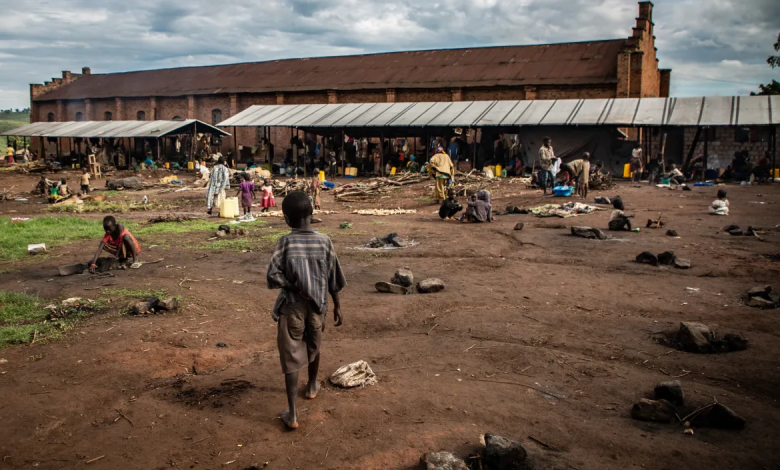Ituri: Inter-Ethnic Violence Ravages DR Congo Communities
The emerging humanitarian crisis in Ituri exacerbates an already precarious situation characterised by persistent cycles of violence and repeated displacement of communities, further straining the region's fragile stability.

A renewed wave of violence between the Democratic Republic of Congo’s armed forces (FARDC) and alleged members of the Zaire rebellion in Nyamamba has triggered a round of displacement in Angumu’s health zone, Djungu territory, and Ituri province.
Local sources and health authorities in the country informed HumAngle that 10,897 individuals from approximately 2,204 households have arrived in several waves since March 17 across 15 different areas, including Abia, Awasi, Apala Etat, Abira, Uyandu, and Pakala.
The Food Security Cluster, a charity coordinating food security responses during and after a humanitarian crisis, reports that these displaced persons, having fled from violence in the Bahema Banywagi chiefdom, are now living in very precarious situations. According to them, several vulnerabilities have been observed within the displaced persons, especially health challenges as well as food security and protection. Reception conditions remain difficult, and humanitarian needs continue to rise.
Faced with this situation, local authorities have urgently appealed to provincial authorities and humanitarian organisations to mobilise the necessary resources to assist the displaced persons. The United Nations Office for the Coordination of Humanitarian Affairs (UNOCHA) has agreed to share the alert with rapid response actors to assess the priority needs and ensure an urgent intervention in the receiving areas.
The emerging humanitarian crisis in Ituri exacerbates an already precarious situation characterised by persistent cycles of violence and repeated displacement of communities, further straining the region’s fragile stability.
For over a decade, the Ituri province in eastern parts of the country has been enmeshed in a cycle of inter-ethnic violence, primarily between the Lendu and Hema communities. Driven by a complex mix of criminal interests and regional geopolitical tensions, this conflict has ravaged Ituri. Vulnerable and without support, adolescents, often still in their early teens, were coerced into bearing arms to protect their communities, abruptly ending their childhood.
“It was the absence of peace that drove us to take up arms. I saw my loved ones being killed, which aroused in me a deep sense of revolt. I took up arms at the age of 15 and took part in attacks, thinking that this would bring us peace,” Elle Alphonsine Cecile, 22, a former combatant, told a Peace News journalist. Today, I regret my actions. Living conditions remain precarious, but I believe that a future of stability is possible.”
A renewed wave of violence between the Democratic Republic of Congo's armed forces and the Zaire rebellion has led to significant displacement in Ituri province, with 10,897 individuals from 2,204 households fleeing to 15 areas since March 17, according to local and health sources.
The Food Security Cluster highlights severe vulnerabilities among these displaced persons, including health and food security challenges, prompting urgent appeals from local authorities for aid from provincial authorities and humanitarian organizations.
Ituri's humanitarian crisis is exacerbated by consistent inter-ethnic violence between the Lendu and Hema communities, driven by criminal interests and geopolitical tensions. This conflict has forced young adolescents to take up arms, disrupting their childhoods in the quest for safety and stability. Former combatants like Elle Alphonsine Cecile express regret over their actions, acknowledging the precarious conditions yet holding hope for a future of peace and stability.
Support Our Journalism
There are millions of ordinary people affected by conflict in Africa whose stories are missing in the mainstream media. HumAngle is determined to tell those challenging and under-reported stories, hoping that the people impacted by these conflicts will find the safety and security they deserve.
To ensure that we continue to provide public service coverage, we have a small favour to ask you. We want you to be part of our journalistic endeavour by contributing a token to us.
Your donation will further promote a robust, free, and independent media.
Donate HereStay Closer To The Stories That Matter




